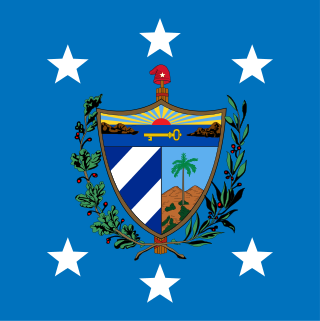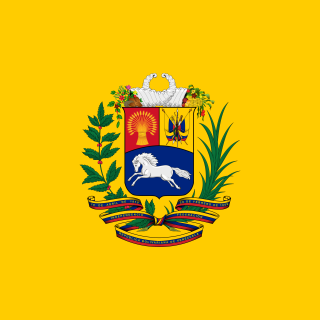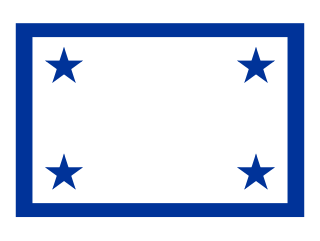
Cuba has had a socialist political system since 1961 based on the "one state – one party" principle. Cuba is constitutionally defined as a single party Marxist–Leninist socialist republic with semi-presidential powers. The present Constitution of Cuba, which was passed in a 2019 referendum, also describes the role of the Communist Party of Cuba to be the "leading force of society and of the state" and as having the capability of setting national policy, and First Secretary of the Communist Party is the most powerful position in Cuba. The 2019 Constitution of Cuba identifies the ideals represented by Cuban independence hero José Martí and revolutionary leader Fidel Castro as the primary foundation of Cuba's political system, while also stressing the importance of the influence of the ideas of Marx, Engels, and Lenin.

Raúl Modesto Castro Ruz is a Cuban retired politician and general who served as the first secretary of the Communist Party of Cuba, the most senior position in the one-party communist state, from 2011 to 2021, and President of Cuba between 2008 and 2018, succeeding his brother Fidel Castro.

A constituent assembly is a body assembled for the purpose of drafting or revising a constitution. Members of a constituent assembly may be elected by popular vote, drawn by sortition, appointed, or some combination of these methods. Assemblies are typically considered distinct from a regular legislature, although members of the legislature may compose a significant number or all of its members. As the fundamental document constituting a state, a constitution cannot normally be modified or amended by the state's normal legislative procedures in some jurisdictions; instead a constitutional convention or a constituent assembly, the rules for which are normally laid down in the constitution, must be set up. A constituent assembly is usually set up for its specific purpose, which it carries out in a relatively short time, after which the assembly is dissolved. A constituent assembly is a form of representative democracy.

The president of Cuba, officially the president of the Republic of Cuba, is the head of state of Cuba. The office in its current form was established under the Constitution of 2019. The President is the second-highest office in Cuba and the highest state office. Miguel Díaz-Canel became President of the Council of State on 19 April 2018, taking over from Raúl Castro, and has been President of Cuba since 10 October 2019.

The Constitution of the Bolivarian Republic of Venezuela is the current and twenty-sixth constitution of Venezuela. It was drafted in mid-1999 by a constituent assembly that had been created by popular referendum. Adopted in December 1999, it replaced the 1961 Constitution, the longest-serving in Venezuelan history. It was primarily promoted by then President of Venezuela Hugo Chávez and thereafter received strong backing from diverse sectors, including figures involved in promulgating the 1961 constitution such as Luis Miquilena and Carlos Andrés Pérez. Chávez and his followers (chavistas) refer to the 1999 document as the "Constitución Bolivariana" because they assert that it is ideologically descended from the thinking and political philosophy of Simón Bolívar and Bolivarianism. Since the creation of the Constituent National Assembly in August 2017, the Bolivarian government has declared the 1999 constitution suspended until a new constitution is created.

Elections in Cuba are held at municipal, provincial, and national levels. Cuba is a one-party state, with the Communist Party of Cuba being described as the "superior driving force of the society and the state" in the Constitution of Cuba, and the communist party is the only official political party. Elections in Cuba are not considered democratic because the government does not allow free and fair voting.

The substantive and procedural laws of Cuba were based on Spanish Civil laws and influenced by the principles of Marxism-Leninism after that philosophy became the government's guiding force. Cuba's most recent Constitution was enacted in 2019.

The Constitution of Egypt has passed over a long period of evolution from the liberal constitution of 1923 to the contemporary constitution.

The president of Venezuela, officially known as the President of the Bolivarian Republic of Venezuela, is the head of state and head of government in Venezuela. The president leads the National Executive of the Venezuelan government and is the commander-in-chief of the National Bolivarian Armed Forces. Presidential terms were set at six years with the adoption of the 1999 Constitution of Venezuela, and presidential term limits were removed in 2009.

The prime minister of Cuba, officially known as the president of the Council of Ministers between 1976 and 2019, is the head of government of Cuba and the chairman of the Council of Ministers (cabinet). The prime minister is the third-highest office in Cuba, after the First Secretary of the Communist Party of Cuba and the President of Cuba, and the second-highest state office.
The Cuban Revolution was the overthrow of Fulgencio Batista's regime by the 26th of July Movement and the establishment of a new Cuban government led by Fidel Castro in 1959.

A constitutional referendum was held in Bolivia on 25 January 2009, postponed from the initially planned dates of 4 May 2008 and then 7 December 2008. Drafted by the Constituent Assembly in 2007, the new constitution was approved in the referendum according to an exit poll by Ipsos Apoyo for La Razón and ATB, a Bolivian television network. Furthermore, it required early elections to be held on 6 December 2009.
Same-sex marriage has been legal in Cuba since 27 September 2022 after a majority of voters approved the legalization of same-sex marriage in a referendum two days prior. The Constitution of Cuba prohibited same-sex marriage until 2019, and in May 2019 the government announced plans to legalize same-sex marriage. A draft family code containing provisions allowing same-sex couples to marry and adopt was approved by the National Assembly of People's Power on 21 December 2021. The text was under public consultation until 6 June 2022, and was approved by the Assembly on 22 July 2022. The measure was approved by two-thirds of voters in a referendum held on 25 September 2022. President Miguel Díaz-Canel signed the new family code into law on 26 September, and it took effect upon publication in the Official Gazette the following day.

The Constitution of Georgia is the supreme law of Georgia. It was approved by the Parliament of Georgia on 24 August 1995 and entered into force on 17 October 1995. The Constitution replaced the Decree on State Power of November 1992 which had functioned as an interim basic law following the dissolution of the Soviet Union.
The Constitution of the Philippines is the constitution or the supreme law of the Republic of the Philippines. Its final draft was completed by the Constitutional Commission on October 12, 1986, and ratified by a nationwide plebiscite on February 2, 1987.

The 1901 Constitution of Cuba took effect in Cuba on 20 May 1902, and governments operated under it until it was replaced by the 1940 Constitution of Cuba. It was adopted by delegates to a Constitutional Convention in February 1901, but the United States, then exercising military authority over Cuba following the end of Cuba's war for independence from Spain, withheld its approval until the Convention amended the Constitution in June to incorporate language from a U.S. statute, the Platt Amendment, that placed limitations on Cuban sovereignty and provided a legal basis for future U.S. military interventions in Cuba.

Miguel Díaz-Canel Bermúdez is a Cuban politician and engineer who is the 8th and current First Secretary of the Communist Party of Cuba since 2021, and as well as the 17th President of Cuba since 2019. As First Secretary, he is the most powerful person in the Cuban government. Díaz-Canel succeeds the brothers Fidel and Raúl Castro, making him the first non-Castro leader of Cuba since the revolution, and as well as the first non-Castro President since 1976.

A constitutional referendum was held in Cuba on 24 February 2019. Voters were asked whether they approved of a new constitution passed by the National Assembly of People's Power in July 2018. The reforms were approved, with 90.61% of valid votes cast in favour. The new constitution came into force on 10 April 2019 after it was proclaimed in the Cuban National Assembly and published in the Official Gazette of the Republic.

The Constitutional Convention was the constituent body of the Republic of Chile in charge of drafting a new Political Constitution of the Republic after the approval of the national plebiscite held in October 2020. Its creation and regulation were carried out through Law No. 21,200, published on 24 December 2019, which amended the Political Constitution of the Republic to include the process of drafting a new constitution. The body met for the first time on 4 July 2021. Chilean President Sebastian Piñera said, "This Constitutional Convention must, within a period of 9 months, extendable for an additional 3 months, draft and approve a new constitution for Chile, which must be ratified by the citizens through a plebiscite." It ended its functions and declared itself dissolved on 4 July 2022.

A referendum was held on 25 September 2022 in Cuba to approve amendments to the Family Code of the Cuban Constitution. The referendum passed, greatly strengthening gender equality, legalizing same-sex marriage, same-sex adoption, and altruistic surrogacy, and affirming a wide range of rights and protections for women, children, the elderly and people with disabilities. Following the referendum, Cuba's family policies have been described as among the most progressive in Latin America.















